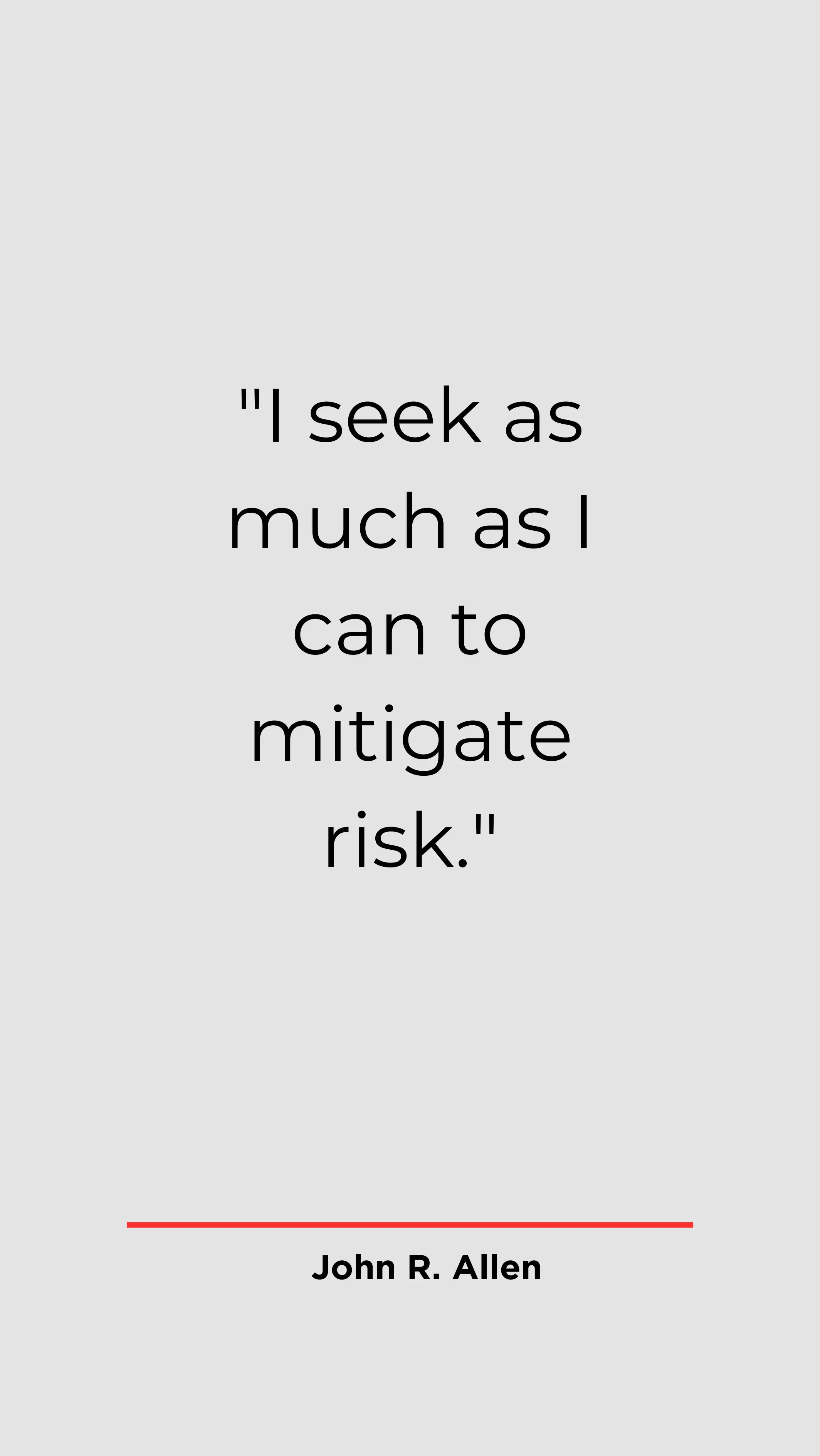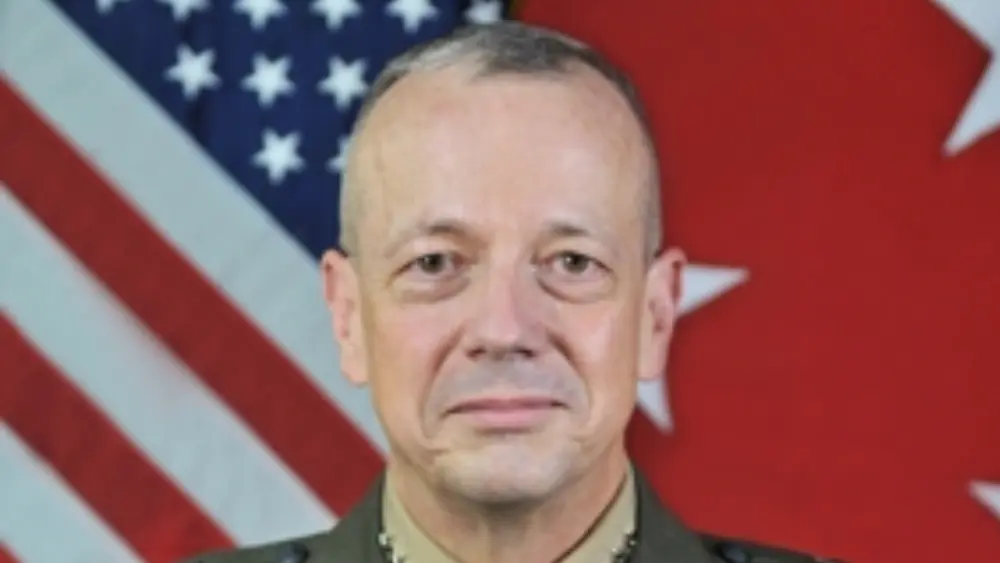John R. Allen, born on December 15, 1953, in Oakton, Virginia, is a distinguished retired four-star general in the United States Marine Corps. He is renowned for his exemplary leadership and service, particularly during his tenure as the commander of the International Security Assistance Force (ISAF) and United States Forces in Afghanistan.
Early Life and Education
John Allen’s journey towards military leadership can be traced back to his formative years and educational background. He took his first significant step in this direction by enrolling at the United States Naval Academy, where he dedicated himself to a rigorous education in the art of naval warfare. Graduating from the academy in 1976 marked the beginning of his professional trajectory within the armed forces.
Despite military challenges, John Allen’s academic dedication underscored his commitment to a career in service and leadership. He pursued a Master’s in National Security Studies at Georgetown University, reflecting both curiosity and determination to excel in defense. His academic foundation became crucial for his military career, providing knowledge and skills for navigating global security and diplomacy complexities.
John R. Allen: Military Career
John R. Allen’s military career was a testament to his dedication and versatile leadership abilities. His journey through the ranks encompassed a wide array of command and staff assignments that demonstrated his exceptional strategic acumen. As an infantry officer, Allen showed innate leadership talent, setting the stage for a remarkable journey in the Marine Corps.
Over the course of his career, John R. Allen held a diverse range of roles, including positions as an intelligence officer and commanding officer, where he honed his skills in decision-making and operational planning. These experiences allowed him to cultivate a deep understanding of the intricacies of military operations and national defense. His command assignments within the Marine Corps showcased his capacity to lead effectively, earning him recognition and respect among his peers and superiors alike. John R. Allen’s military career stands as a testament to his steadfast commitment to service and his ability to excel in the most demanding of roles within the armed forces.
Operation Iraqi Freedom and Counterinsurgency Expertise
John R. Allen’s military career reached a pivotal juncture during Operation Iraqi Freedom, where he played a significant role as the deputy commanding general for the II Marine Expeditionary Force. During this service period, he excelled in complex counterinsurgency operations, showcasing exceptional leadership and strategic expertise. In the midst of a challenging and dynamic environment, Allen’s ability to adapt and lead effectively became evident.
In Iraq, his contributions earned accolades for orchestrating complex military campaigns, highlighting his exceptional command and leadership skills. His counterinsurgency expertise defined his career, establishing him as a renowned specialist in the field. John R. Allen’s Iraq experiences displayed military skill and advanced his path to a distinguished leadership role in the U.S. military.
John R. Allen: Commander in Afghanistan
In 2011, John R. Allen took on one of the most pivotal and challenging assignments of his military career when he was appointed as the commander of the International Security Assistance Force (ISAF) and United States Forces in Afghanistan. His appointment came as a succession to General David Petraeus, and it marked a crucial moment in the ongoing Afghanistan War. Allen assumed command during a period characterized by significant strategic decisions and intense efforts to stabilize the country.
As the commander in Afghanistan, John R. Allen faced the daunting task of overseeing a complex and multifaceted conflict. His leadership during this critical phase would have far-reaching implications for the mission’s success and the future of Afghanistan. His tenure in this role reflected his reputation as a seasoned military leader capable of navigating the challenges of a dynamic and demanding theater of operations.
Challenges and Leadership in Afghanistan
John R. Allen’s tenure as commander in Afghanistan was fraught with a multitude of challenges. A key challenge was managing a diverse multinational coalition with distinct objectives and priorities, requiring effective coordination and leadership. Coordinating diverse international forces was challenging, requiring strategic acumen and diplomatic finesse to maintain unity of purpose effectively.
Furthermore, Allen’s leadership was tested as he oversaw a transition in U.S. strategy in Afghanistan. His approach emphasized key elements such as counterinsurgency efforts, training Afghan security forces, and building partnerships with Afghan leaders. These strategic priorities were critical in addressing the complex security situation and preparing the Afghan government and military to take on a more substantial role in maintaining stability and security in their country. John R. Allen’s leadership in Afghanistan was marked by his ability to adapt to evolving challenges, his dedication to achieving strategic objectives, and his commitment to the mission.
John R. Allen: End of Active Duty and Post-Military Career
Following his tenure as commander in Afghanistan, John R. Allen concluded his active duty military service and retired from the Marine Corps in 2013. His retirement marked a distinguished career spanning decades, including critical leadership roles in the U.S. armed forces, notably commanding in Afghanistan.
However, retirement from active duty did not signal the end of his contributions to national security and foreign policy discussions. In his post-military career, Allen remained deeply engaged in these areas. In senior roles at Brookings, his vast experience shaped the discourse on national security and international relations. John R. Allen’s transition from active military service to his post-military career demonstrated his enduring commitment to the betterment of U.S. foreign policy and national security even beyond the battlefield.

Public Service and Advocacy
John R. Allen’s dedication to public service transcended the boundaries of his military career. Even after retiring from active duty, he remained deeply involved in numerous humanitarian and Veterans’ organizations. His advocacy extended to a range of issues, including Veterans’ well-being, mental health, and the unique challenges faced by military families. In these roles, he leveraged his leadership skills, experience, and the platform he had acquired over the years to address the pressing concerns of those who had served their nation in uniform.
Through his involvement in these organizations and his tireless advocacy, John R. Allen continued to make a meaningful impact on the lives of Veterans and their families. His commitment to public service in this capacity exemplified his enduring dedication to those who had sacrificed for their country, reaffirming his belief in the importance of supporting and honoring those who had served in the military. John R. Allen’s post-military career was a testament to the principles of service and leadership that had guided him throughout his life, leaving a lasting legacy of compassion and advocacy.











